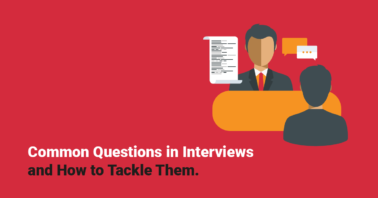How To Handle Stress Appropriately At Work.
With high demands and targets to meet, stress is one of those constant conditions that cannot be avoided in any workplace. Although this condition could be considered normal and often drives people to meet their targets at work, excessive stress can be detrimental both to one’s health and the organization. Knowing when this stress has exceeded its comfort zone and how to handle it is very important and can go a long way in determining what this condition turns one into.
So what are some of the signs and symptoms showing that you could be experiencing extreme stress:
- Always feeling anxious and irritable.
- Loss of interest in your work.
- Sleeping problems.
- Fatigue.
- Having trouble concentrating.
- Muscle pains and severe headache.
- Social withdrawal.
- Resorting to junk food, alcohol or drugs to cope.
With such extreme stress, one’s productivity and health can be affected. For example, they could be more prone to heart complications, high blood pressure, a weak immune system to mention but a few. Furthermore, the organization too suffers as a result of stressed workers and is prone to more production errors, fall in profits, loss of customers to mention but a few. With such detrimental effects, individuals have to take action and find out how they can manage stress better. Here’s what we recommend.
1. Find out what stresses you:
The most effective way to solve a problem is to deal with its cause. Knowing what exactly brings about your stress gives you the necessary information you need to take action against it or better your situation.
Keeping a work journal where you record the events of your day, what stressed you and how you reacted to it can help you backtrack and find out the root causes of your condition, and further help you assess your response to stressing situations and whether you need to find better responses.
Some of the major causes of stress at work include:
- Excess workload.
- Lack of planning and organization.
- Redundancy at work.
- Monotonous and unchallenging work tasks.
- Conflicts with work colleagues.
- Unclear direction and performance expectations.
Finding out the cause of your stress is the first and most important step to dealing with it all together.
- Find healthy responses for what stresses you.
Having identified what exactly stresses you, the next step is to figure out realistic and healthy responses to your stressors. People have different ways that they handle stress that could be either healthy or unhealthy. In as much as some unhealthy responses to stressors could be effective, they are often short-lived and produce even more detrimental effects. Knowing the difference between what productive responses to stressors are and what they are not can also help you deal with stress much more effectively.
| Healthy Responses | Unhealthy Responses |
|
|
With healthy responses, you can be sure that you will be successful in reducing stress and remain healthy.
- Plan and Prioritise you work:
In many cases, stress at a workplace is as a result of the work tasks one has to perform. Sometimes, it may not actually be because one has an excessive workload but because they actually do not know how to manage the workload they have effectively.
Managing your workload begins with planning how to do it and sticking to that plan. Without a plan in place, one is likely to take longer than they should on the piece of work, multitasking that would lead to mediocre work and fail to anticipate any unforeseen circumstances that could make the whole task fail.
Being able to plan and spread one’s work over time enables one to actually perform the tasks according to the organization’s expectations. This also reduces exposure to stress that comes with trying to do too many tasks at a go and in so little time that could have resulted in average or below average work.
- Put in place boundaries:
By not having boundaries one makes themselves prone to stress.
Having boundaries for oneself as well as others is very important. For example, one should always have a time limit of when they should keep doing work. They have to think of other aspects of their life such as their family and personal time.
Furthermore, one should have a limit on how much work they accept to take on from other people. Always being the “Yes man” who is always willing to take on more tasks even when it is detrimental to your health puts you in a dangerous situation. Having boundaries on how your co-workers should relate with you also helps avoid instances of conflict such as conflicts that could result in stress.
It always important to have productive work boundaries and stick to them because it helps one to further go ahead and actually avoid situations that could stress them altogether.
- Maintain healthy and positive work relationships:
Dealing with different people from diverse backgrounds can be very tasking and stressful. However, if you learn the art of understanding and dealing with these different people, you are able to reduce any stressors that could result as a result of poor work relationships.
One should always aim at avoiding conflict at the workplace and creating friendly and positive relationships with their workmates. Should one have a misunderstanding with one of their workmates, they should seek to solve the difference as soon as possible.
- Have time for yourself:
Although the work we do pays our bills, one should never forget they too need time for themselves. Being able to take off breaks in between work or choosing to rest is very helpful. It is not practical and does not make sense for one to keep working as they will not produce the best results.
Taking time off to relax and rest replenishes one’s mind, reduces stress, makes one alert and further enables them to perform better.
- Talk to you Colleagues and Supervisor about the situation:
Should you fail to cope with stress on your own, it is helpful to seek for social support from those that you work with. Perhaps they contribute to your stressors; letting them know your situation and how it could be detrimental to both you and them can motivate them to help you handle the situation better.
Your colleagues and supervisors could even suggest other healthy measures you could take to deal with the situation.
Do not choose to handle the situation on your own should it get worse. Seek help from others because it could affect them as well.
- Seek medical help:
In worst case scenarios, stress can be so negative that one has to seek medical help.
Should you feel that nothing is helping improve the situation, do not be ashamed of visiting a psychiatrist or medical counselor for help.
Waiting for the condition to get worse could just lead to both the loss of your job and life. Treat the condition before it is too late.
Excessive stress is a condition that is not immune to anyone. It can affect anyone in any workplace and is a condition that should be given much attention as it not only affects the person but all those around them and the organization at large. Be sure to take the right steps in handling it because it is a long-term condition that could affect you for the rest of your life.





